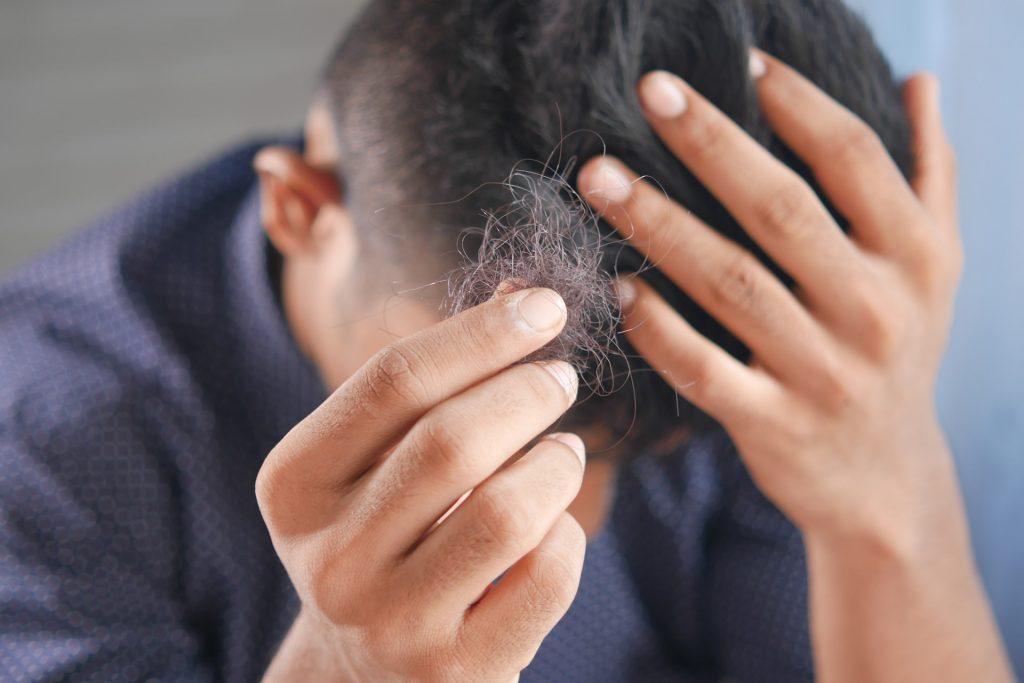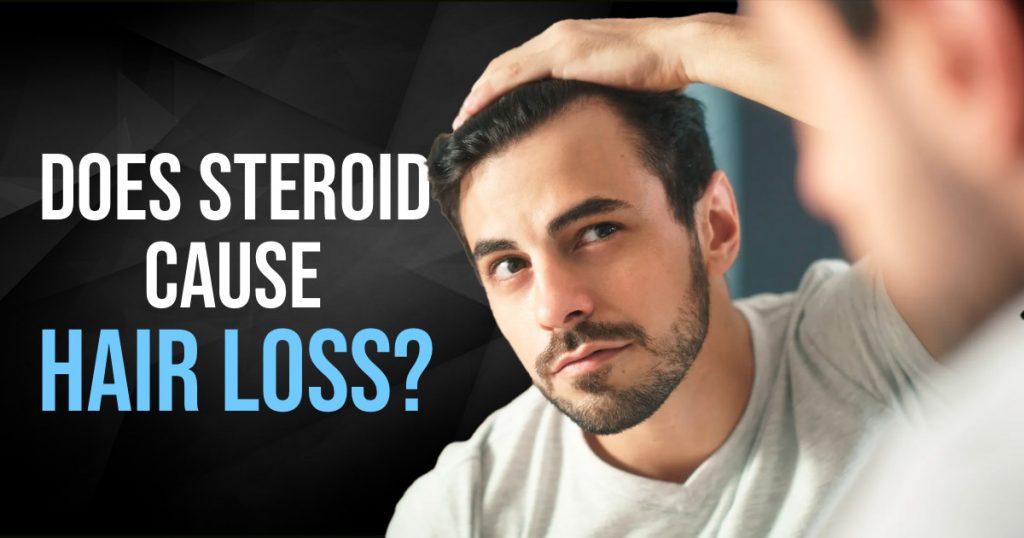The utilization of steroids has grown in popularity across diverse domains, spanning from bodybuilding to medical therapies. While steroids offer benefits like muscle growth and improved athletic performance, they can also come with potential side effects, one of the most concerning being hair loss. For individuals who have experienced hair loss due to steroid use, this article explores ways to stop hair loss after a steroid cycle and regain those luscious locks.
Does Steroid Cause Hair Loss?
Steroids, especially anabolic steroids, are artificial versions of the male hormone testosterone. These substances can significantly alter the body’s natural balance, leading to various physiological changes, including hair loss. Hair loss can occur in both males and females due to steroid usage, but it’s more prevalent in males owing to their naturally elevated testosterone levels.
Understanding Androgenetic Alopecia
Hair loss induced by steroids is often referred to as androgenetic alopecia, commonly known as “male pattern baldness.” This condition unfolds in a foreseeable manner, usually commencing with a receding hairline and thinning at the crown of the head. As time passes, it may advance to more extensive hair loss. Androgenetic alopecia is primarily driven by genetic factors and hormonal imbalances.
Which Types of Steroid Cause Hair Loss?
Not all steroids have the same impact on hair loss. Some steroids have a more pronounced effect on hair follicles due to their conversion into dihydrotestosterone (DHT), a hormone linked to hair loss. Specifically, anabolic steroids have the potential to elevate DHT levels within the body, expediting hair loss, particularly in those genetically inclined toward male pattern baldness.
Here is a list of steroids that are known to potentially cause hair loss:
- Anabolic steroids like Anadrol can contribute to hair loss, particularly in individuals who are genetically susceptible to male pattern baldness.
- Anavar, another anabolic steroid, can also harm hair follicles, leading to hair loss concerns.
- Dianabol is notorious for its potential to cause hair loss, making it essential for users to be vigilant about this side effect.
- Masteron is known for its androgenic properties, which can exacerbate hair loss, especially when used by individuals predisposed to baldness.
- Primobolan, although milder than some other steroids, can still contribute to hair thinning, particularly in those with a genetic susceptibility.
- Proviron is another steroid associated with hair loss, and its use should be approached with caution.
- Trenbolone is a potent anabolic steroid that can accelerate hair loss, especially in individuals with a family history of baldness.
- Winstrol, while favored by athletes for its performance-enhancing properties, can also have a detrimental impact on hair health.
How Many Cycles of Steroid Use Before You Experience Hair Loss?
The timeframe for encountering hair loss following the initiation of a steroid cycle may differ among individuals. It’s not solely dependent on the number of cycles but also influenced by factors such as genetics, dosage, and duration of steroid use. Some individuals may start noticing hair loss after just one cycle, while others may not experience it until they’ve been using steroids for an extended period.
The key takeaway is that hair loss can be a potential side effect of steroid use, and it may happen sooner or later, depending on individual factors. It’s essential to monitor your body’s response to steroids and be prepared for the possibility of hair loss, especially if you fall into the category of those at higher risk due to genetics and steroid choice.
How Do You Stop Hair Loss After Using Steroids?

If you’ve experienced hair loss due to steroid use, the good news is that it’s often not permanent. Once you discontinue steroid use, your body’s hormonal balance starts to return to normal, allowing for natural hair regrowth. However, patience is crucial during this process, as it may take some time for hair follicles to recover and resume their regular growth cycle.
Here are some steps to help stop hair loss and support the regrowth process:
1. Consult a Healthcare Provider
Before taking any action, consult a healthcare provider or dermatologist who can assess your specific situation and provide guidance on the best course of action. They might suggest different therapies or approaches for managing the situation.
2. Use Hair Loss Treatments
Drugs such as minoxidil and finasteride have demonstrated their efficacy in stimulating hair regrowth and halting additional hair loss. It’s essential to use these treatments under the supervision of a healthcare provider to confirm their appropriateness for your individual condition.
3. Natural Hair Care
Treat your hair gently and avoid harsh chemical treatments. Minimize the use of heated styling tools, opt for gentle hair care products, and steer clear of tightly-styled hairstyles that can exert pressure on hair follicles.
4. Minimize Stress
Hair loss can also be increased by high stress levels. Engage in stress-reduction activities like exercise, meditation, or spending time with loved ones to keep stress in check.
5. Hair Serum
Consider using a hair serum that contains phyto-actives to support a healthy scalp and hair follicles. This can help reestablish balance in your hair biome.
What Can You Do to Prevent It from Happening?
Prevention is often the best approach when it comes to hair loss. If you’re considering or currently using steroids, here are some tips to minimize the risk of hair loss:
- Consult a Healthcare Provider – Before starting a steroid cycle, consult a healthcare provider to discuss potential side effects, including hair loss, and explore alternative treatment options if available.
- Monitor Dosage and Duration – Follow the prescribed doses and duration of steroid usage diligently, as exceeding them or extending the duration can heighten the likelihood of hair loss and other negative impacts on your body.
- Natural Alternatives – Consider natural alternatives to steroids whenever possible. These alternatives can offer a safer and milder approach to achieving your fitness or medical goals.
Final Thoughts
Steroid-induced hair loss can be a concerning side effect, but it’s not necessarily permanent. By adopting the correct methods, you can effectively halt hair loss and facilitate the restoration of your hair. Consulting a healthcare provider, using hair loss treatments, practicing natural hair care, and reducing stress are essential steps in this journey.
Remember that prevention is key, so if you’re considering steroid use, take precautions and discuss potential side effects with a healthcare professional. By prioritizing your hair health and making informed choices, you can maintain your beautiful locks while benefiting from the positive aspects of steroid use in your chosen field.
